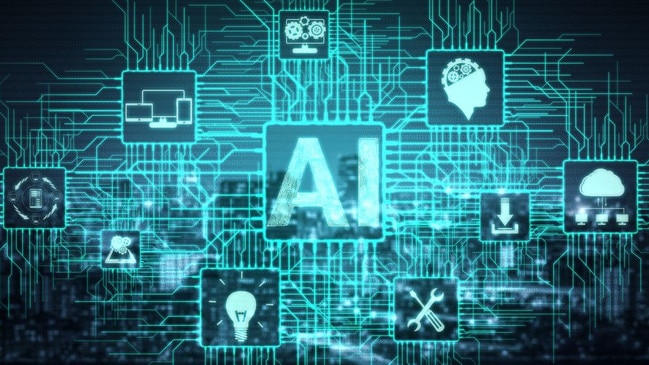Australian Secret Intelligence Service AI fears and how it’ll aid investigations
AI will become a key tool in the Australian Secret Intelligence Service’s investigations and intelligence collection but its rapid development is ‘intimidating’, the service said.

Australia’s secret service says applying artificial intelligence at the earliest stages of an investigation could be the key to finding a “needle in a haystack”.
It also recognises that it might not be set up to simply retrofit the technology and like many others, it will need to spend on new teams to implement it safely.
As with most Australian organisations, AI has become a priority but its full value is still being tested – and in the Australian Secret Intelligence Service, its outcome could prove devastating.
“What is different about AI is the rate or maturity we’re witnessing. That, plus its potential to disrupt current ways of working and open up new opportunities with little warning means ASIS and our partners in Australia’s National Intelligence Community must act with even greater speed, agility and diversity in our thinking,” deputy Director-General Catherine Burn told The Australian.
The organisation is one of several in Australia’s intelligence and defence networks that is experimenting heavily with the technology in the hopes that it will not only assist but also help speed up operations.
ASIS had long relied on the collection of intelligence to aid its investigations, and AI had begun to play a major role in that collection, Ms Burn said. “ASIS is increasingly looking at our human intelligence work through an ‘AI lens’ at the earliest point. For example, maybe an AI solution can help us find that ‘needle in the haystack’ quicker,” she said.

“Since ASIS’s establishment in 1952, our success at collecting intelligence and disrupting threats has always hinged on forecasting and responding to sudden shifts in the technology landscape.”
The organisation recognised that its application could not simply be retrofitted and it had set out to hire employees who could turn artificial intelligence into something of use. “We also understand AI is key to our success in 2030 and beyond. We’re on the lookout for creative data scientists who can build smarter intelligence analysis tools, and people with a deep understanding of where AI is headed to forecast new threats to our operations and help keep our officers overseas safe and secure at all times,” Ms Burn said.
While the organisation and Ms Burn didn’t have a prediction on what AI might look like this year, she did express concern for the potential harm it could cause and how it was “intimidating for all organisations”. “It’s probably safe to say that as much as we think we know about AI today, AI developers will undoubtedly over-achieve and throw up new opportunities and risks we haven’t considered,” she said.
“Spotting opportunities to help secure Australia has always been at the heart of ASIS’s human intelligence work. So it’s an uncertain but also an incredibly exciting time for ASIS and our close partners (in the intelligence community).”
At the Department of Foreign Affairs and Trade, chief information officer Mathew Smorhun oversees the implementation of AI. The technology “gives computers the ability to learn and make adjustments based on new information from data … it can recognise patterns, and with the right inputs make judgments that change based on context”.
He said the use of AI was still relatively in its infancy at DFAT but it had run pilot programs and test groups experimenting with its use. Mr Smorhun said he expected AI to cause major disruption in cyber security this year and its impact was a major talking point for both the government and private sector. “There is already advice published by ACSC on cyber security considerations being a critical precondition for AI. Trust will be an important consideration in this space; how we leverage this technology in a way that maintains data integrity and security will be key,” he said.







To join the conversation, please log in. Don't have an account? Register
Join the conversation, you are commenting as Logout